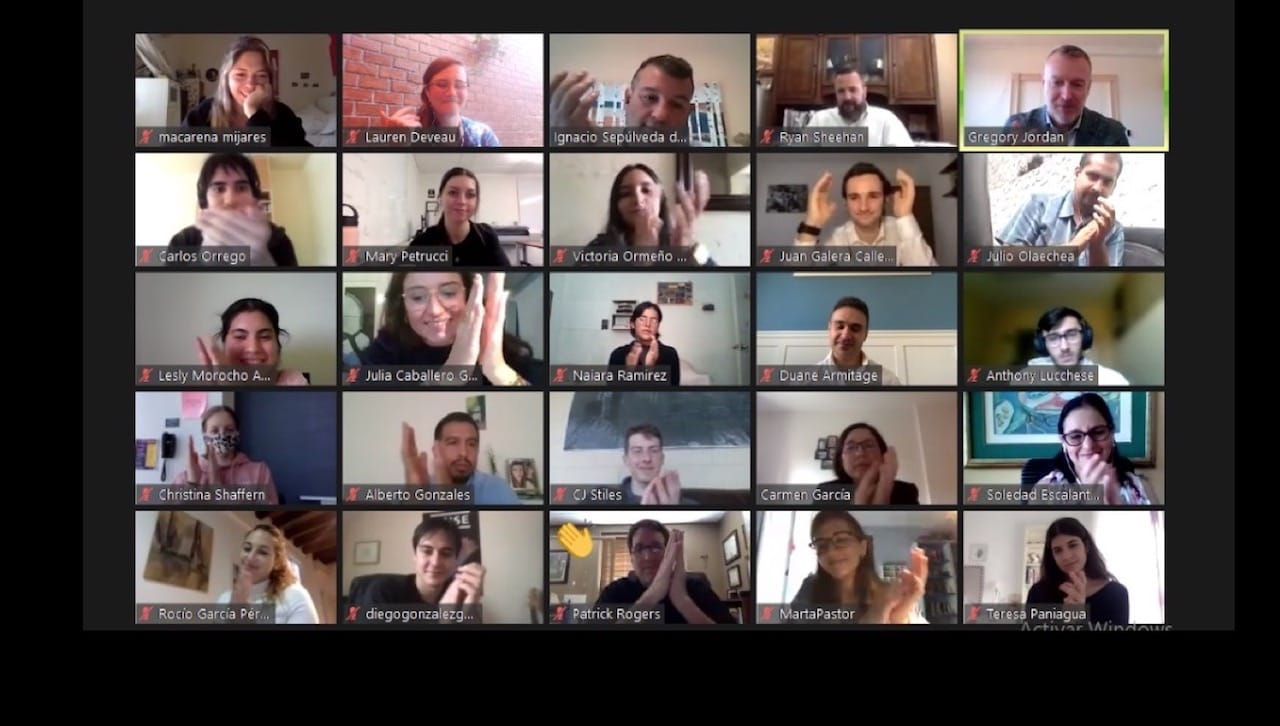What Students from Jesuit Colleges Across Globe Share

A flame ignited in the hearts of students from Jesuit universities across the globe they discussed the unique ways in which their shared experience of Ignatian humanities shape their lives around the common goal of making the world a better place for all. Students from The University of Scranton, Loyola Andalucia en Seville in Spain and Universidad Antonio Ruiz de Montoya in Peru were moved by their common spiritual base as they learned from and with one another through a two-day virtual Ignatian Humanities event sponsored by Slattery Center for the Ignatian Humanities at Scranton.
“It was really fulfilling, more so in the personal than the academic level. It felt like our education is truly helping us have an effect in the world, and that we are not alone in the values we carry with us every day,” said Juan Galera, Loyola Andalucia en Seville.
The two-day event, held April 7-8, brought together more than 40 students from the three Jesuit universities to explore Ignatian humanities. The virtual event included breakout sessions with students from three continents in which they reacted to a lecture by Scranton Philosophy professor Duane Armitage, Ph.D., entitled, “Finding God in All Things: Jesuit Truism or Ignatian Truth?”
“Interacting with other students from Jesuit universities around the world, especially on the central Ignatian topic of social justice, facilitated a profound examination into how we apply Jesuit values and principles toward the injustices we witness in the world today,” said Isaiah Livelsberger, a senior at The University of Scranton from New Oxford, Pennsylvania.
Alberto Gonzales Guzmán of the Universidad Antonio Ruiz de Montoya found the discussion sessions “exciting and challenging. The distances and differences of our peoples are not as many as we think they are. Each partner experiences the emotion and challenge and transmits it vividly. We are not alone, we are a great community.”
“I felt that my experience was heard and valued by people who share the same convictions, each participant had an open heart to different social conflicts,” said Naiara Cruz Ramirez Cabrera, Universidad Antonio Ruiz de Montoya. “Especially in this pandemic situation that has exposed humanity’s inability to act together, spaces like this promote citizen participation and the vocation of service in the function of our community and those who need it most.”
Dr. Armitage argued in his keynote lecture that social justice without spirituality risks devolving into mere Marxism. He explained in his address that for St. Ignatius of Loyola, the founder of the Jesuits, God is Christ, and that “Christ is the crucified, that is, the victim, the marginalized, the weak.” Social justice must include what students in the event came to call “spiritual justice” for it to truly mimic Christ’s teaching on reconciliation and the divinity of every human life.
“Thus to find God, Christ, in ‘all things’ is primarily to encounter God in the oppressed, the persecuted, the victimized, which of course provides justification for the social justice ethic of siding with the weak,” said Dr. Armitage. “When we think of God then as Christ, as the victim, as the marginalized, as the weak, the idea of finding God ‘Christ’ in all things begins to take on new meaning, meaning that is thoroughly steeped in Social Justice.”
In addition to core Ignatian principles and teachings, the students shared another common idea: the hope the Ignatian Humanities event will grow in future years to involve more students, school and face-to-face dialog.
The University of Scranton’s Gail and Francis Slattery Center for the Ignatian Humanities was established to advance the University’s liberal arts tradition and to enhance the role it plays in the formation of students to become “men and women for and with others.”






